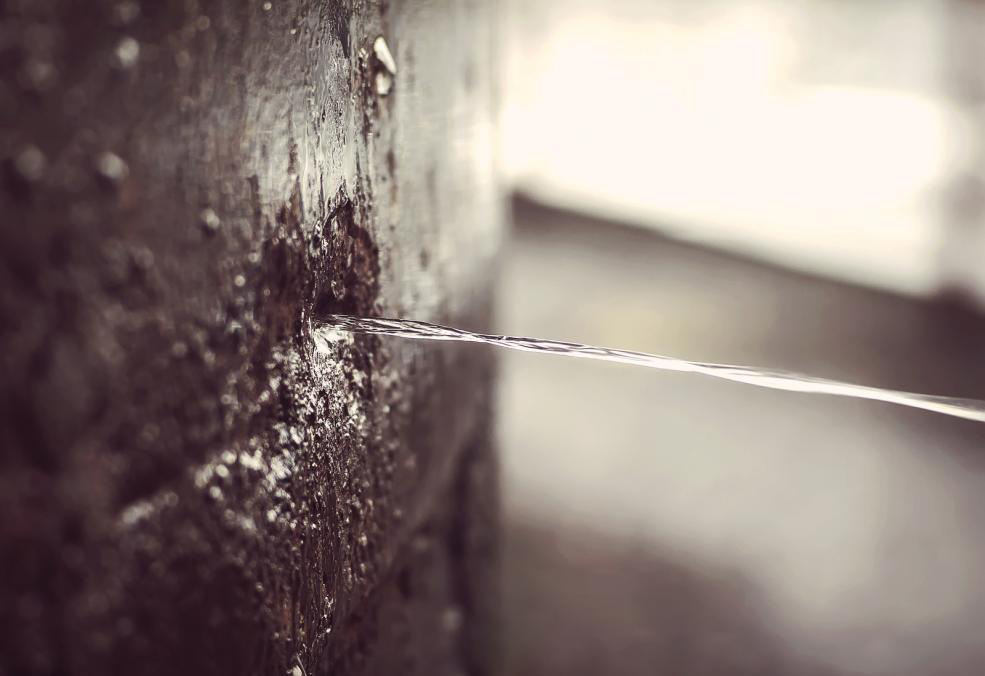Guide To Water Leakage Discovery In The House
Guide To Water Leakage Discovery In The House
Blog Article
We've come across this post relating to Locating water leaks directly below on the net and reckoned it made sense to write about it with you here.

Early discovery of dripping water lines can reduce a possible disaster. Some little water leaks may not be visible.
1. Check Out the Water Meter
Inspecting it is a proven way that assists you uncover leakages. If it moves, that indicates a fast-moving leakage. This suggests you might have a sluggish leak that can also be below ground.
2. Inspect Water Intake
Analyze your water expenses as well as track your water usage. As the one paying it, you ought to observe if there are any kind of inconsistencies. If you spot sudden changes, in spite of your usage coinciding, it indicates that you have leakages in your plumbing system. Bear in mind, your water bill should fall under the exact same array on a monthly basis. A sudden spike in your bill indicates a fast-moving leak.
A constant rise every month, also with the exact same practices, shows you have a slow leakage that's additionally gradually intensifying. Call a plumber to thoroughly examine your residential or commercial property, especially if you really feel a warm area on your flooring with piping beneath.
3. Do a Food Coloring Test
When it comes to water consumption, 30% comes from commodes. If the shade somehow infiltrates your dish throughout that time without flushing, there's a leak between the storage tank as well as dish.
4. Asses Exterior Lines
Don't fail to remember to inspect your exterior water lines also. Examination faucets by connecting a garden tube. Needs to water permeate out of the link, you have a loose rubber gasket. Replace this as well as make sure all links are tight. It will help obtain it skillfully examined as well as kept each year if you've obtained a lawn sprinkler system. One small leak can squander tons of water and surge your water costs.
5. Examine the scenario and inspect
House owners need to make it a practice to check under the sink counters as well as also inside closets for any kind of bad odor or mold growth. These two red flags show a leakage so punctual attention is required. Doing routine assessments, also bi-annually, can conserve you from a major issue.
Check for discolorations and damaging as the majority of pipelines as well as home appliances have a life span. If you think leaking water lines in your plumbing system, do not wait for it to rise.
Early discovery of leaking water lines can alleviate a prospective disaster. Some tiny water leakages might not be visible. Checking it is a proven method that assists you discover leakages. One small leak can waste tons of water and also spike your water bill.
If you believe leaking water lines in your plumbing system, do not wait for it to intensify.
5 Signs that Your Home Has a Hidden Leak
Your water bill is unusually high without explanation
Generally, your water bill tends to stay consistent throughout the year as long as the same number of people live in your household year round. The bill might be higher during certain times of the year, such as summer, when your lawn may require more watering than it does in cooler months. However, if you notice a rise in your water bill that you can’t explain, it’s an indicator that there’s a hidden leak somewhere in your home.
You hear running water
One of the biggest signs that you have a water leak is the sound of rushing water when no plumbing fixtures are on and when no water-using appliances are running. If you hear running water in your walls when no water is being used anywhere in your home, locate your home’s main water shut-off valve, shut off your water supply, and contact a plumber at once.
Your home smells musty
Hidden leaks often occur in dark spaces, such as behind walls or under carpeting. Incidentally, darkness and moisture can create an ideal breeding environment for mold or mildew. If you start to smell mildew or the scent of rotting wood or stagnant water around your home, it’s a fair bet that a leak is the culprit.
You find wet spots around your home
The wet spots usually show up as moist areas in your carpeting. If your home has a basement level, puddles on the floor could indicate a slab leak. Outside, unexplainable puddles or lush, green patches in your yard often mean that there’s a leak in your sewer line or main water line.
You have stains, bubbles, or condensation on your walls/ceiling
Stains or condensation on your walls or ceiling are both major signs of a hidden leak. Also, drywall (AKA. sheetrock) is very absorbent, and as it takes on more water from a leak behind a wall, it will start to bubble, swell, or warp. If you see this happening in your home, don’t wait to contact a plumber before the water damage spreads.
https://www.ezflowplumbingaz.com/blog/2019/june/5-signs-that-your-home-has-a-hidden-leak/

Do you enjoy reading up on Locating water leaks? Try to leave feedback directly below. We will be interested to listen to your views about this blog entry. We hope that you come back again in the near future. Do you know someone else who is truly interested in the niche? Be sure share it. Thanks for your time. Visit again soon.
Report this page